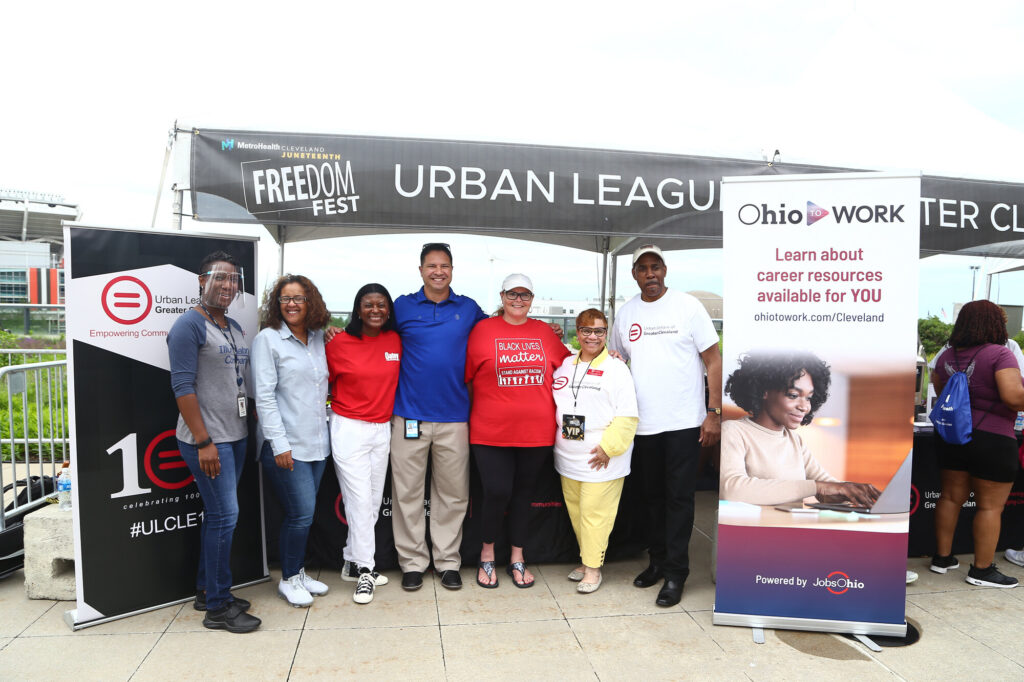Established in 1917, the Urban League of Greater Cleveland (ULGC) began as an initiative focused on mitigating the issues of housing discrimination, employment, and education for Black families migrating from the South. Over its 108-year history, that initial imperative has expanded to include school desegregation, job skill development, voter registration, advocating for opportunities, and business and economic development.
Over its storied history, the ULGC has become the preeminent empowerment organization for African Americans in the greater Cleveland area to strive for and achieve their full potential. It has gained prominence not just locally but nationally through the effectiveness and results-based programs it has launched and promoted in its mission to serve underrepresented and underserved communities of color.
Behind the scenes, the ULGC’s more recent trajectory has been led by the strength, heart, love, and vision of its president and CEO, Marsha A. Mockabee, since 2011. Marsha first arrived at the Urban League in 1991 when she was co-director of a youth program, Career Beginnings. Housed at Case Western Reserve University, it was transferred to the ULGC.
At that time, the incoming CEO was looking to revitalize the organization by bringing on programs that had a sound track record, were operational, and had support. The program Marsha was involved with fit the bill. She then began as the Education and Youth Development director before becoming the interim director of the ULGC in 2009.
Before that, Marsha spent seventeen years in the corporate world, but eventually realized that her heart and soul weren’t being nourished and that she was in an environment she wasn’t designed for. The non-profit sector called to her, and the ULGC has been her sole focus.
When she first joined the Urban League Movement, female CEOs were a smaller percentage of the leadership. Today, the ratio is closer to a 55-45 percent balance. As Marsha says, the time proved providential. “It was mission over money, for me. I dreamt of being in a job where I knew I had a divine calling and received a divine assignment. Joining the ULGC, I found the perfect career, aligned with my life’s mission.”
Marsha discovered that many of her UL colleagues were similarly aligned, fully committed to the ULGC movement. Now she knew her heart could lead in concert with her skill set and business approach. “I realized that I had been uniquely gifted to be a servant leader through my love for people and passion to champion the underrepresented. My corporate experience didn’t allow me to freely exhibit those types of inherent gifts.”
Marsha attributes her divine mission to the source of her spiritual foundation, which has served her well throughout her career and her decision-making process. “Becoming CEO of the Urban League was never my goal. It wasn’t even on my career path. It wasn’t until our affiliate was on life support that I was asked to run the Urban League as the interim director because of the money that I had been in the position to raise, and the relationships that I’d been blessed to develop in the time that I’d been in the number two position in the organization.”
And the organization has done very well during her tenure. But there were times of doubt, especially when she stepped in as CEO, especially in the beginning. She asked: “Okay, Lord, what? How am I to help turn things around?”

What she received was, “I’m going to turn it around in a way that it will be clear that nobody did it but Me.”
Marsha responded with, “Well, then, why do you need me?” And He said, “There are three reasons. One is that I know you’ll be obedient and do what I tell you to do. Number two, even when you don’t see me working, you’ll still trust that I am with you. Third, your ego is small enough that you will give me the glory.” Mic drop!
And that has been Marsha’s core imperative ever since. She doesn’t take her privilege as CEO lightly, stating that it’s a big responsibility that’s backed by actions and words. She’s fully aware that she’s not always hit the mark, but the Lord is developing her as an ongoing process. “I’m glad He’s not done with me yet. I try to remain open and flexible, to continue growing. I’m not yet all that I want to be, but thankful I’m not what I used to be.”
Stay tuned for the next segment appearing in the June issue.


